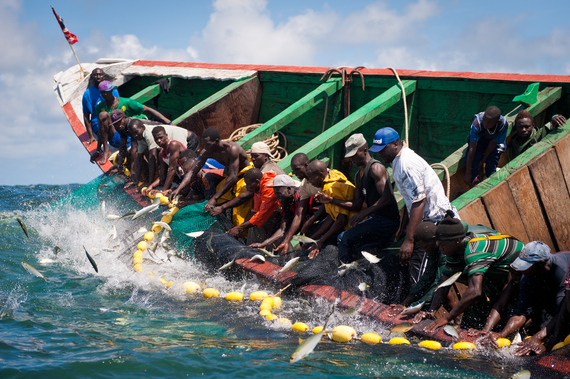Source: Huffington Post
Author: Peter Eigen
The fishing communities dotted along Africa’s often inhospitable coastline have overcome many challenges before. But they now face some of their most difficult challenges ever.
Many depend on fishing for their survival, but their fish stocks are declining and climate change accelerates that decline. The warming, rising, more acidic seas affect habitats and reproduction.
This is an important environmental question, of course, but the stakes go higher than that. Many coastal communities have few other options besides fishing. As a Mauritanian minister once said: “Take fisheries away from our people, and they will have little else to lose.” Political and social stability is at risk.
One of the best ways to build climate resilience for these communities is to protect their primary livelihood, the fish. And as delegates gather in Marrakesh for COP22, they must consider this fact.
Protection will not be easy. Many reports, including the 2014 Africa Progress Report – Grain, Fish, Money – have warned how illegal, unreported, and unregulated (IUU) fishing are destroying fish stocks all around the continent. In West Africa, illegal fishing alone accounts for a third of all fish caught.
The governments of Mauritania, the Seychelles, and others understand this better than anybody, of course, which is why they have been helping to establish the Fisheries Transparency Initiative (FiTI) since early 2015, an initiative to protect fish stocks through the twin principles of transparency and participation.
The FiTI is a global multi-stakeholder initiative, in which countries seek to shed a light on access to fish resources – who has access, what are the (financial) conditions, and how much is extracted? Answering these important questions in a deliberative process will help countries to improve governance in this crucial sector for the benefit of their citizens.
The FiTI is gathering steam. In addition to Mauritania and the Seychelles, Guinea, Indonesia, and Senegal are the first pilot countries. A first successful funding meeting was held in Washington last month during the Annual Meetings of the IMF / World Bank Group [editor’s note ie in October], and under the guidance of an International Multi-Stakeholder Advisory Group, the global FiTI transparency standard will be finalized by early next year.

